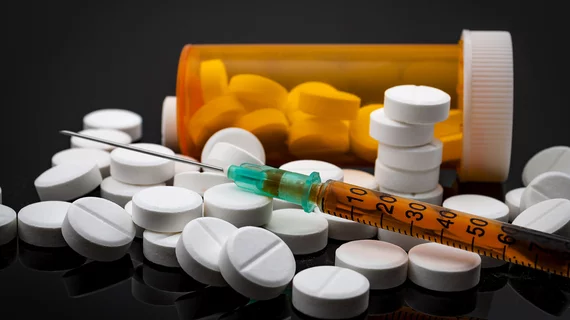On Monday, June 11, CMS released guidance for states to leverage Medicaid in fighting opioid abuse and misuse—with the document making specific mention of efforts to reduce negative impact in infants and outlining potential benefits of health information technology.
“The number of American infants born dependent on opioids each day is heartbreaking,” said HHS Secretary Alex Azar. “Today’s announcement reflects the Trump Administration and HHS’s commitment to helping states use Medicaid to support treatment for this condition and other challenges produced by our country’s crisis of opioid addiction. State-level innovation, including in the use of prescription drug monitoring programs and electronic health records, has been and will be a key piece of ending this crisis.”
The document from CMS paid special attention to neonatal abstinence syndrome (NAS), a condition that results from withdrawal among opioid-exposed infants shortly after birth.
“NAS is a significant and rapidly growing public health concern,” said Tim Hill, acting director for the Center for Medicaid and CHIP Services. “The number of infants born with a diagnosis of NAS is increasing significantly. This rapid growth is directly related to the opioid crisis facing this country.”
The CMS guidance encourages treatment for NAS both in the hospital and at home, with care involve mothers and caregivers to provide swaddling, quiet environments, skin-to-skin contact and other environment-related approaches.
The guidance also encourages leveraging health information technology to prevent and treat opioid-related complications. Telemedicine and prescription monitoring can combat opioid abuse. States can integrate prescription monitoring into electronic health records (EHRs), while working to improve sharing of such data between systems.
“Today’s guidance further builds on CMS’s commitment to provide states with the tools and approaches available within the Medicaid program to accelerate states’ ability to respond to the national opioid crisis,” said Hill. “By leveraging and improving the technological capabilities of state Medicaid programs, we are providing Medicaid agencies, providers, and patients with the tools they need to improve health outcomes associated with addiction.”

